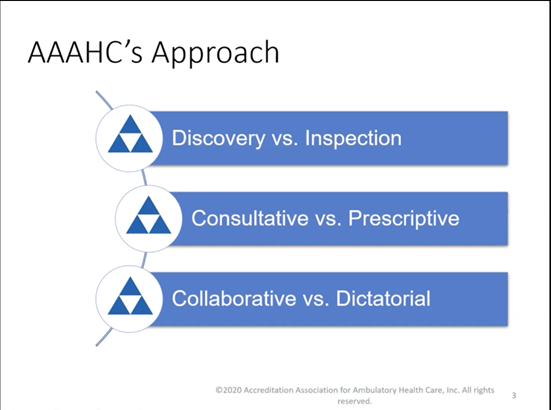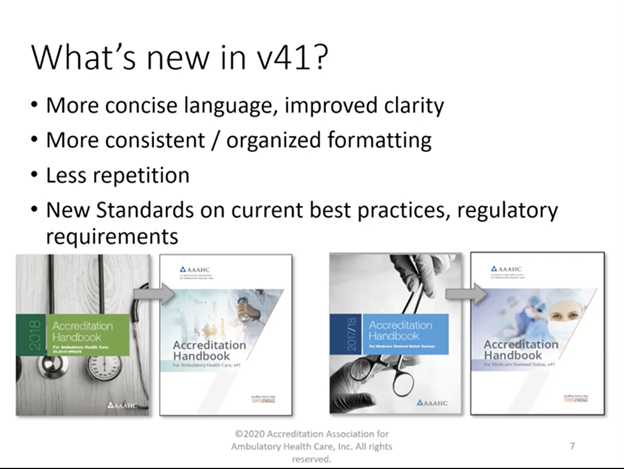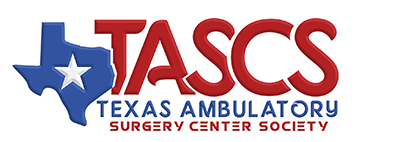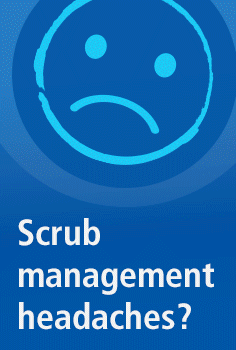AAAHC Officer Explains How to Prepare for Accreditation Surveys
On May 13, Dr. David Shapiro, an officer for the Accreditation Association for Ambulatory Health Care (AAAHC), spoke to Texas Ambulatory Surgery Center Society members about the survey process and steps ASCs can take in preparation for their surveys.
When it comes to AAAHC’s approach, Shapiro explained the surveyors work to be consultants with facility staff and collaborate with them to ensure they become accredited and are able to keep that status. “A lot of our standards are very open-ended,” he said. “We ask you to define things.” For example, pediatrics could mean something different for every center, and some centers might not even have pediatric departments, so it’s up to the facility to define what they have and what the cut-offs are for their departments.

Shapiro suggested ASCs submit their applications for surveys nine months prior to their accreditation expiration. From there, the survey will be scheduled and could take one or two days, depending on the scope of the facility. After the surveyors take the information back to their staff, they work to get the accreditation decision back to the ASC within a month of the survey. “We’re not just leaving your survey results off to the side and waiting for a month,” Shapiro said. “They really do have a lot of eyes on those reports.”
He also went over handbook updates and how new versions are being labeled to create a more clear and effective process for facilities to follow. Shapiro educated the members on two handbooks, one for ambulatory surgery centers in general and one for Medicare-deemed status. There are two things facilities should know about obtaining Medicare-deemed status that Shapiro went over: There is a surprise survey that can be done at any time in a window of several months, and there will be a health surveyor as well as a life safety surveyor collecting information. The life safety inspector will especially look more in-depth at emergency power and fire safety, which will include going up into the ceiling to check firewall penetration.

These handbooks offer a detailed explanation of everything that needs to be in order to reach accreditation. “It’s one of the best documents out there, and it’s also one of the least used,” Shapiro said. “People don’t realize how much stuff there is in there — that it’s actually really, really helpful.” The handbooks include core chapters that apply to every facility, as well as adjunct chapters that go over more specific items only certain facilities would have. Shapiro also highlighted the tools section of the handbooks that goes over documentation requirements, sample applications for privileges, personnel and clinical records worksheets that surveyors will actually use during onsite surveys and other helpful resources.
“A survey with us is really an open-book test,” Shapiro said. “We have shown you exactly what it is we’re going to survey on.” Some helpful hints when prepping for the survey he offered were creating a tentative agenda for surveyors that ASC staff can follow, designating a work area for surveyors to review documentation and ensuring the ASC has a procedure scheduled for the visit, if applicable.
When asked about COVID-related changes, Shapiro said anything COVID-related would be addressed with standards already in place through the infection control section of the handbook. So there are no new rules to consider, specific to AAAHC, however, Shapiro pointed out that any local or state regulations that are stricter than AAAHC’s will also need to be upheld. Shapiro added that while COVID did momentarily have surveyors lagging behind with closures and postponements, they are just about back on track.
For more helpful tips on the survey process, consider these 10 actions from Shapiro, which ASCs can use to stay survey ready:
- Stay current and use the handbooks.
- Do quarterly self-assessment audits to pick apart any issues.
- Take mock surveys, and go over disaster preparedness plans.
- Allow the entire staff to become familiar with the handbooks and what to do to stay prepared.
- Keep meticulous records so you can show surveyors what you’re doing.
- Work on developing Quality Improvement studies.
- Document ongoing surveillance.
- Focus on safe medication practices, which are especially important to surveyors during COVID.
- Implement patient safety toolkits.
- Participate in continuing education programs from professional associations.

